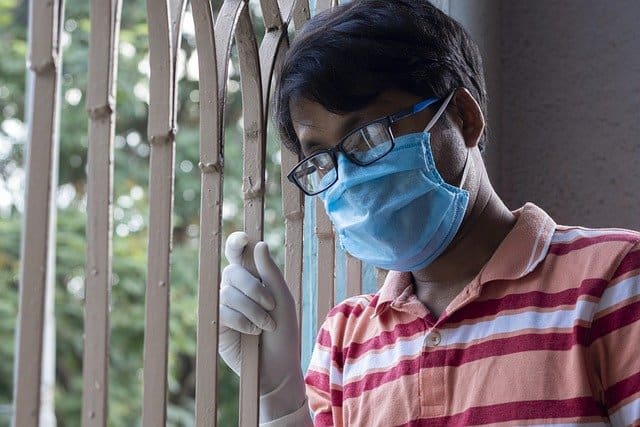A recent investigation from China shed light on the relevance of wearing glasses in the context of the COVID-19 pandemic. What and how do the chances of contracting the SARS-CoV-2 virus change for those who wear glasses?
It is already well known, coronaviruses spread through the mucous membranes. In fact, this is the reason why masks have become everyday use in the new normal, as they cover the mouth and nose, the main transmitters and receptors of a possible infection.
However, there is another mucosa on the face masks do not cover, and where the SARS-CoV-2 virus can also be introduced: the eyes. For this reason, a team of scientists from China devoted itself to study how the use of glasses affects – or helps – with respect to the risk of contracting the disease.
Based on a sample of 276 hospitalized patients in Suizhou city, Hubei province, east central China, they found that only 5.8% of the infected population wore glasses, significantly less than the total of 31.5% of people who wear glasses in the city.
Those who wear glasses get less contagious?
Out of 276 patients from Suizhou Zengdu Hospital, analyzed from January 27 to March 13, 2020, 155 (56.2%) were men, with an average age of 51 years. The first thing the scientists did was separate them between those who used glasses for more than 8 hours a day and those who didn’t.
In this way, they found that only 16 patients used glasses for 8 or more hours a day, all due to myopia. This 5.8% of the sample is the one that was contrasted with 31.5% of the total population of myopic patients in the Chinese province.
Therefore, the research concluded that the proportion of patients hospitalized with COVID-19 is low precisely because of the use of glasses for much of the day, which gives them aggregate protection compare to the population does not wear glasses.
“These findings suggest that the eye may be an important infection route for COVID-19, and more attention should be paid to preventive measures such as frequent hand washing and avoiding touching the eyes,” concludes the publication, titled as Association of daily wear of glasses with susceptibility to coronavirus disease 2019 infection.
Still, some professionals have warned that although the study is valid, it does not provide sufficient certainties that its results are, in fact, strong. One of them is Dr Amir Khan, a physician with the UK’s National Health Service (NHS), who wrote that “there is still insufficient evidence that using glasses makes you less susceptible to COVID-19.”
Although it is clear that the eyes are a route of entry to the virus, and that therefore the glasses operate as a barrier against potential contagion, “to draw any firm conclusions from this would be entirely premature, but there are some things we can take note of,” he wrote in Al Jazeera, although he noted that Undoubtedly, the aforementioned research allows us to understand the phenomenon in a new way.
Simon Kolstoe, a professor of health care at the University of Portsmouth, England, emphasizes that it is a “small study” and, although he maintained that the research “is very interesting”, he considered that the sample is not sufficiently big enough to draw final conclusions. “We certainly need more data before any advice can be given about wearing goggles alongside our face masks”, concludes in his article for The Conversation.
